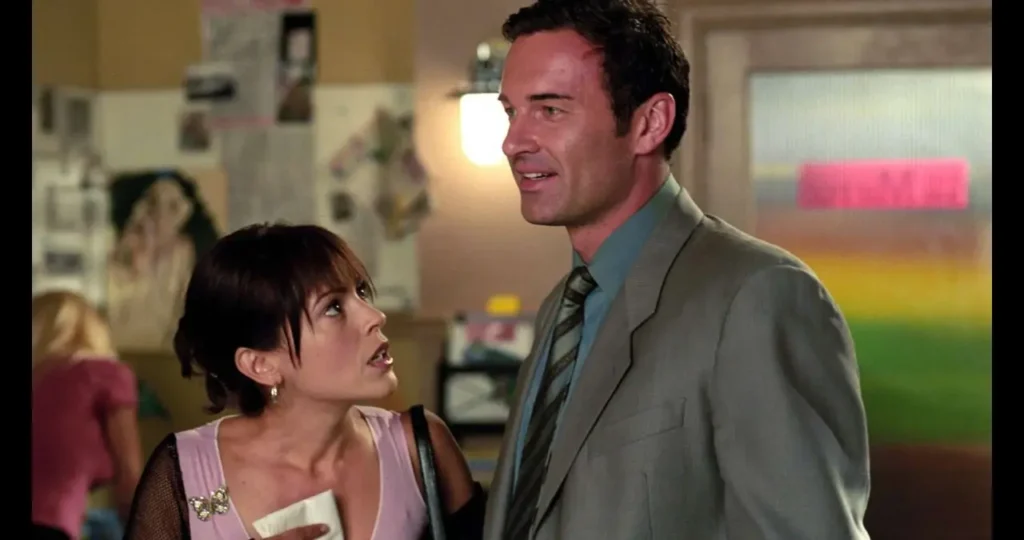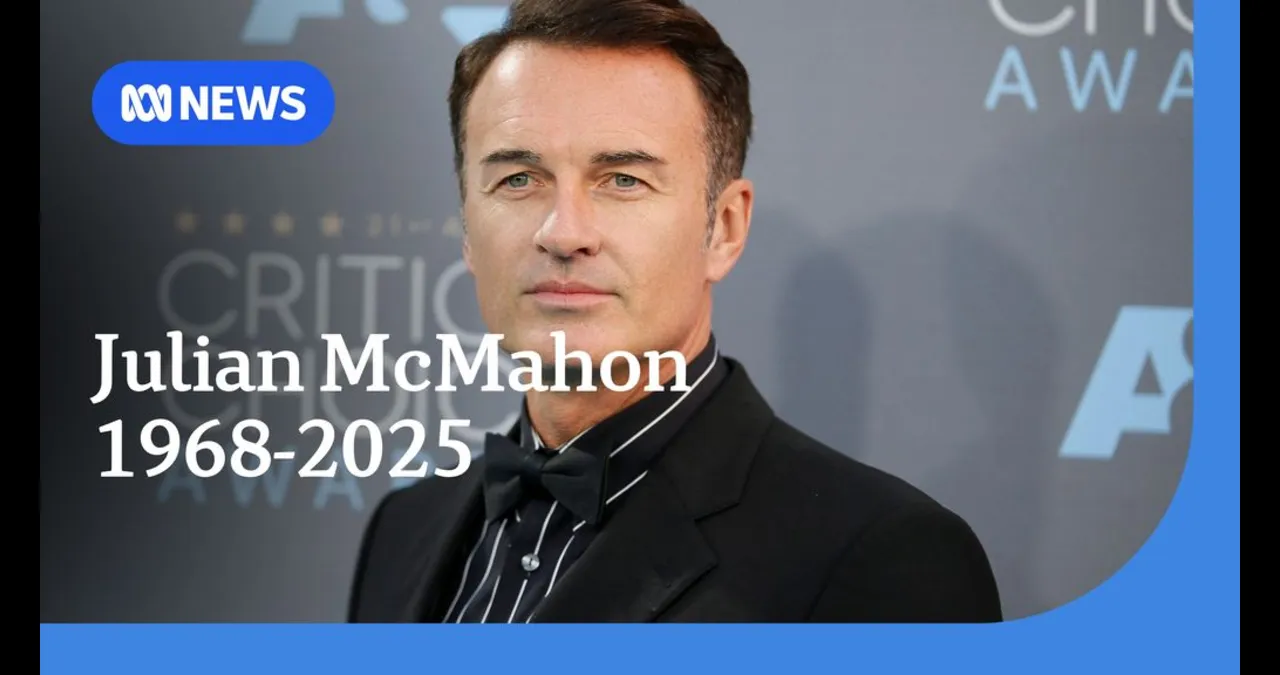Julian McMahon has always been the sort of performer who makes an immediate impression, whether you first met him in soaps or bigger screen parts. He brings together effortless charm, a quietly intense presence, and a credibility that few actors can match. Born into high expectations, he navigated his heritage and passions to carve out a career defined by depth, versatility, and a willingness to take risks. In the sections that follow, we explore his early life, rise in the industry, and the lasting mark he’s left on fans and colleagues alike.
Early Life and Path to Performance
Julian McMahon’s formative years were marked by a blend of privilege and rebellion that set the stage for his future success. Raised in a household steeped in public service, he absorbed a strong sense of duty from his father, who held national office before Julian’s birth. But even amid elite surroundings, Julian gravitated toward expression. He experimented with music and visual style in ways that, while sometimes shocking to his parents, revealed early creativity and a refusal to follow a prescribed path. As he matured, his interest in modeling and visual storytelling led him away from more conventional studies in law and economics. That decision initially strained family relationships but ultimately unleashed a talent that would define his life.
It wasn’t long before Julian’s modeling career took him abroad. He straddled runways and campaigns from Europe to America, gaining confidence in front of the camera. That visibility culminated in his breakthrough acting opportunity—drama in his homeland, a small but notable start that propelled him into a global career.
Transition from Model to Actor
What followed was a relatively swift move into acting, but one rooted in careful intention rather than impulse. Julian leveraged his on‑camera experience to land a spot on a domestic drama that seasoned him for life in front of crews and critics. From there he leapt across the pond, drawn by the allure of international work. Mastering an accent and adapting to new audiences, he took guest roles in classic dramas, proving he was more than just a presence—he was an actor.
That principle became immediately evident when paired with strong writing and production values. His dedication to character study became his calling card. Early work in crime‑focused series showcased presence and smarts. Melodrama mixed with moral complexity, and Julian handled it, growing his craft quickly. The recognition that followed led directly to the roles that would establish him as a screen presence with both gravitas and sex appeal.
Breakout Roles and Industry Recognition
It was once he landed a long‑running cable drama about appearance that the world couldn’t look away. He portrayed a plastic surgeon with a complex moral code—simultaneously seductive, arrogant, vulnerable, and unsparing. His performance earned acclaim from critics and audiences. It wasn’t just charisma, it was the tangible sense of a character living inside him, crackling through every line and scene. Speaking off‑camera, Julian would smile and say that he loved diving into contradictions, and it showed. Awards attention and long‑term roles soon followed.
Soon after, he crossed into comic book territory with villainy that surprised viewers. Where some wear over‑the‑top roles thinly, he made them rich and believable, tapping into real human ambition, insecurity, and pride. He took a character known as a symbol of pure malice and infused him with psychological complexity—just enough perspective to make audiences believe in his eventual downfall without condemning him entirely.
That role demonstrated that Julian could straddle franchise demands and fully nuanced acting. He retained credibility, avoided caricature, and impressed industry insiders eager to see where he would land next.
Mature Roles and Continued Evolution
As the millennium progressed, Julian continued to surprise. He gravitated toward characters engaged in personal battles, whether psychological or legal, or relational. He was drawn to parts that weren’t easy to swallow but felt deeply human. He sometimes played morally ambiguous figures driven by complicated pasts and contradictory desires. His presence always radiated a grounded intelligence—even when playing villains, he made choices that felt authentic, somehow relatable.
Alongside serial drama roles, he embraced theatrical projects and independent film. Lower‑budget but high‑impact parts gave him chances to experiment, often quietly removing him from the spotlight but deepening his craft. Whether leading a psychological thriller or appearing in ensemble casts, he blended strength and nuance, always leaning into emotional authenticity.
It was during these years that Julian became known as a performer who chose quality over shimmer. He followed stories that provoked and delighted in equal measure, often reinterpreting genre roles with introspective truth. Though he remained a recognizable star, he never seemed content, always searching for the next complex story that spoke to him—and often, to us.
Recent Work and Late‑Career Renaissance
In the last season of his journey, Julian leaned into parts reflecting legacy and reflection. He accepted thicker roles, both literally and figuratively, and took on mentoring characters who hinted at their histories. Whether playing political figures, criminal investigators, or tormented souls, he communicated the steady authority of experience.
One project in particular brought renewed attention—a psychological heavy‑hitter opposite a veteran Hollywood legend. Their dynamic brimmed with old wounds, unspoken truths, and shifting alliances. Julian delivered a physical and emotional performance widely recognized as one of his best. Even in scenes filled with tension, he often let silence speak the loudest, proving that subtlety can still captivate.
Beyond performance, Julian quietly supported causes like health research, animal rescue, and conservation. He spoke candidly about empathy, awareness, and the way storytelling can inspire change. Though not flashy with the press, he volunteered his time, his platform, and even coordinated fundraisers. That seriousness off‑camera gave his on‑camera work even more weight—this was someone who acted with conscience, not just craft.
Legacy and the Unforgettable Presence of Julian McMahon
When you remember Julian McMahon, you remember contradictions seamlessly embodied. Charm and danger. Brilliance and fallibility. His career spanned decades but never felt dated. He always seemed invested in reinvention, whether in soap, drama, film, or indie. He held a rare talent: the ability to make genre work feel vital and deeply personal.
Colleagues often speak of his generosity on set. He was never loud, but always present—offering encouragement, insights, and a clarity of vision. He believed performance was communal, not ego‑driven. That ethos made him beloved by directors and cast alike.
He also brought that openness to fans. He Julian McMahon their reactions on social media or in letters, and he understood why certain roles resonated so strongly. He once said the best parts weren’t always the biggest. Sometimes the most memorable role is the one that connects.

Frequently Asked Questions
Q. What generation of storytelling did Julian McMahon come from?
He emerged at a time when television became edgier and more daring. His early roles echoed classic soap structure, but he quickly gravitated toward character‑driven series that blurred moral lines. He became a fixture in this modern era.
Q. Did Julian McMahon ever win major awards?
While he didn’t always take home trophies, nominations came his way—particularly when he balanced charisma, complexity, and controversy in breakthrough roles. He remained respected, often earning honors from industry peers rather than flashy ceremonies.
Q. What defined his role selection later in his career?
He seemed drawn to roles that reflected proven experiences—characters aged by conflict, history, and empathy. He found meaning in stories that offered emotional redemption or moral reckoning.
Q. Was Julian involved in activism?
Yes, quietly but consistently. He supported social and environmental campaigns, raising awareness through private events or selective endorsements. He believed celebrity meant responsibility.
Q. How did people view his off‑camera persona?
Sources who worked with him describe a grounded presence. He worked hard but never became self‑serious. He listened, he respected the craft, and he offered space for others to shine.
Q. What do fans recall most fondly?
Many remember the magnetic spark he brought to morally gray characters—like the surgeon who lived by night and the sorcerer bound to higher stakes. They called his work “spellbinding” and “deeply human.”
Q. Did Julian do stage work?
Yes, early in his career he acted in plays, including heartfelt dramas in London and Sydney. That stage experience informed his screen work, lending added presence and confidence.
Q. What was his approach to accents and character voices?
He approached each role with studied care. Often quietly and patiently, he worked with coaches to meld in seamlessly. Fans were surprised to learn he was Australian since his voice rarely revealed it.
Q. Did he mentor younger actors?
Yes—colleagues remember conversations over dinner or between takes, where he’d share advice without preaching. He believed skill paired with sincerity created the best work.
Q. What was his biggest career risk?
Taking parts that eschewed sure commercial success for artistic truth. He favored stories with moral complexity, even when audiences couldn’t predict how he’d end.
Quick Bio Table
| Attribute | Details |
| Full Name | Julian Dana William McMahon |
| Birth | Sydney, midsummer date of the late sixties |
| Parentage | Son of a former national leader and a high‑profile social figure |
| Early | Education Brief studies in law and economics |
| Modeling | Debut International campaigns—Europe and North America |
| Early | TV Home‑grown drama, then American daytime roles |
| Breakthrough Role | Complex romantic anti‑hero in a long‑running drama |
| Big Screen | Villain Iconic comic‑adapted antagonist |
| Later | Television Mature roles in psychological and investigative series |
| Recent | Project A high‑tension thriller opposite a screen legend |
| Philanthropy | Environmental, health research, animal welfare |
| Stage | Credits International theater—London and Sydney |
| Death | Peaceful conclusion surrounded by loved ones |
Final Thoughts
Julian McMahon’s career reflects artistic curiosity more than a desire for spectacle. He worked steadily and his roles deepened over time—voices, faces, memories that stuck with viewers because they felt authentic. He reminds us what acting can be at its best: a conduit for truth wrapped in storytelling.
Through complex heroes, iconic villains, and committed activism, he crafted a legacy rooted in dedication, risk, and heart. His work will continue to echo long after the screen goes dark.



